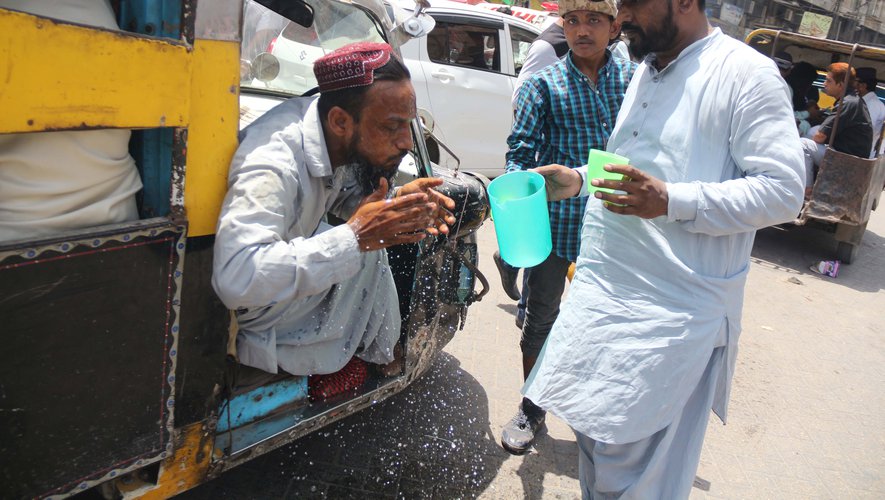Unusual heat waves have been hitting India and Pakistan for two months now. However, the heat and the humidity now exceed the survival threshold for people outside.
We can now literally die of heat on Earth. India and Pakistan, for example, are suffocating. These two countries experienced a record spring with temperatures sometimes exceeding 40 degrees in New Delhi in April. And the trend does not seem ready to be reversed, with values between 43° and 45°C in New Delhi, and possibly 50°C at the Pakistani borderto believe Science and Life.
49.5°C: this is the temperature recorded on May 1, 2022 in Nawabshah #Pakistan. Up to 47.2°C in Banda #India and Jacobabad #Pakistan April 30, 2022.
44.6°C: this is the AVERAGE TEMPERATURE for the afternoons of April 2022 in Nawabshah (the hottest month of April ever recorded!). pic.twitter.com/1zSFgVMFv5
— Dr. Serge Zaka (Dr. Zarge) (@SergeZaka) May 2, 2022
Without forgetting that the monsoon, with an increasingly high humidity rate in a context of climate change, could make this area which is difficult to live in the long term. As a reminder in 2018, the strongest monsoon for a century had killed at least 400 people. In addition, according to the IPCC, southern Asia is the area most affected by the increase in heat waves linked to global warming.
What is the tolerance threshold for humans?
Scientists rate it at 35 degrees “wet bulb” (Tw) for healthy people. This value takes into account the humidity of the air to measure our resistance to heat, details The Huffington Post. The human body does not tolerate heat and humidity very well. A study of theAmerican Physiological Society published in January 2022 confirms this. The latter measured the ability of healthy young adults to perform simple tasks in six different extreme weather conditions. The experiment of a few hours revealed that no participant reached the limit of 35° Tw.
At less than 35°C, without being able to cool off, in about six hours, the body succumbs.
A deadly threshold exceeded in Asia
Indeed, on the continent, this threshold has been exceeded in recent days. And the consequences are dramatic: in the Indian state of Maharashtra, 25 people have died since March because of the heat. And mortality linked to heat waves in India, already the victim of deadly heat waves in 2015 and 2019, has increased by more than 60% since 1980, according to the Indian Minister of Earth Sciences, as reported by our colleagues from the Huffington Post.
Another consequence: more and more fires. Last week, The world reported the damage caused by the fire of a huge landfill in India. « Under the effect of the heat, the methane generated by the decomposing organic matter ignited. The capital of India, which, like the rest of South Asia, is at the heart of a wave of record heat, was enveloped in thick acrid smoke ». More than 7,800 wildfires were reported in the space of three days late last week in areas of Maharashtra, Uttar Pradesh, Odisha, Madhya, Pradesh and more, alert Futura Sciences.
ud83cuddeeud83cuddf3 India: a giant fire has been raging for 4 days on the landfill site near Delhi. The country is experiencing a heat wave not seen for more than 120 years, with temperatures exceeding 50°C. The human and natural consequences could be terrible. pic.twitter.com/5SwhjgsmIK
— ???? ??????? ??? ??????? (@72powpow) April 30, 2022
A problem, and not the least, also raised by our colleagues from National Geographic : power plants are running out of coal and are no longer sufficient to meet demand because with the heat wave, there is a sharp increase in the demand for electricity, going as far as a shortage.
India is one of the countries in the world where the frequency of heat waves has increased the most in 40 years: the Indian meteorological service counted 413 days with temperatures above 40°C between 1981 and 1990, and 600 days between 2011 and 2020, details Futura Sciences. A large part of the world’s population will therefore have no choice but to desert these places in the most extreme conditions, warns Friederike Otto, from Imperial College London, to the Huffington Post.

